The novel Coronavirus has done more than expose weak toilet paper supply chains and the real cost of childcare; it has undermined traditional measures of success, emphasizing the need for inclusive responses that go beyond one-dimensional benchmarks such as unemployment rates and GDP. The first outbreak was documented[1] in Wuhan, Hubei province, People’s Republic of China, a country which boasts the second largest economy in the world according to GDP measures from the IMF. From Italy to Kenya to Japan, countries—rich and poor alike—have struggled to prevent the spread of Covid-19, although some have been much more successful than others in containing and mitigating cases.
The United States of America has the largest economy in the world. In 2019 the country had a GDP of $21.44 trillion[2]. However, even with significant financial resources at their disposal, American leaders could not save the country from devastating Coronavirus outbreaks. In the words of Joel Achenbach, William Wan, Karin Brulliard and Chelsea Janes of the Washington Post, “Dysfunctional politics, a lack of funding for public health and a rush to reopen the economy ignited the resurgence of the virus.” America’s ineffective attempts to contain Covid-19 have now been labeled a crisis as death tolls soar above 150,000. This failure to contain the pandemic further illustrates that traditional economic measures are not enough. While properly directed resources can absolutely aid in containment efforts, countries also need inclusive recovery plans that address pre-existing challenges to equitable and inclusive progress.

The US ranked 26th on the 2019 Global Social Progress Index, having fallen in rank seven places in the past six years (dropping 1.12 points overall). This decline in social progress, despite continued economic success, was alarming before the pandemic and now is even more disconcerting. According to the Brookings Institution, many Black communities in the United States are struggling with disproportionate rates of Covid-19. For example, the Economy League in Philadelphia highlighted the Covid-19 specific vulnerabilities of their communities while acknowledging the underlying social progress issues at play, as illustrated by the Social Progress index. These existing inequalities were further amplified by protests over the killing of George Floyd and racial discrimination by police in America. And yet, prior to the pandemic, the US was still revered as a successful nation on the basis of its economic power.

“We went into this as we responded to the crisis making sure that we looked at the populations that were already so vulnerable… This crisis exacerbated and made more urgent some of the work that we had already started on.”
Helen Gayle of the Chicago Community Trust speaking at the 2nd What Works 2020 virtual forum
In contrast, Canada, which borders the US to the north, ranked 9th on the global Social Progress Index in 2019, with only a fraction of America’s GDP (ranking 16th with $1.904 trillion), has handled the novel Coronavirus remarkably well. Canada has reported less than 10,000 Covid-19 attributable deaths among 112,892 positive cases[3]. Admittedly, some countries have a geographic advantage. New Zealand and Australia have very few, if any, neighboring countries which have aided in their relatively successful handling of Covid-19 cases. However, the US and Canada share a border that stretches more than 5,500 miles and yet their responses to Covid-19 could not be more different. Since 2014 Canada has improved by 1.84 points on the Social Progress Index, making notable strides on the components of Personal Freedom and Choice as well as Inclusiveness. Perhaps a strong foundation built on the dimensions of the Social Progress Index—Basic Human Needs, Foundations of Wellbeing and Opportunity—is what the world truly needs to be more resilient in the face of unpredictable crises.

Our CEO Michael Green stated it clearly at the start of our third What Works 2020 virtual forum this year: “Covid-19 is not just about health and economies, this crisis has to be managed in a way where no one is left behind. We must focus on social progress.” It is imperative that we build back from these uncertain times in an inclusive and equitable way which supports and improves the lived experience of everyone around the world (for more resources visit our Covid-19 Resources page).
The novel Coronavirus is new and has created unprecedented societal shifts. However, traditional economic measures fail to thoroughly capture these shifts. It is incredibly difficult to manage what we cannot measure. To tackle this challenge, we need reliable measures of cases, fatalities, reinfection rates, geospatial movement, and many other variables. In response to Covid-19 we must look to data-informed responses that utilize accurate and available information to fully address the scope of the issue, which goes far beyond just treating cases. Covid-19 is not just a pandemic, it is a global catastrophe that requires the world to redefine what it means to be successful. We need policies that combine real measures of people’s lived experience to ensure positive and meaningful impact. It is not enough to eradicate Covid-19. We must work to use data to create informed responses which allow us to build back better and address the underlying issues—inequality, exclusion and disparity among others—which allowed this crisis to be perpetuated.
The Social Progress offers a way forward, a way to use data to evaluate past successes and failures to guide and support future resilience. It refutes the idea of a single story, of a single metric such as GDP, of a single problem, and instead compiles many data points to paint a fuller, more vibrant and intersectional depiction of the day to day experiences of people around the world. It allows countries to learn from each other, catalyze each other, and value holistic growth over constrained competition. For more information check out socialprogress.org and subscribe for updates on the upcoming 2020 Social Progress Index.
[1] On January 3rd, the first official cluster of an unidentified virus was reported to WHO. Full timeline: https://www.who.int/news-room/detail/29-06-2020-covidtimeline
[2] GDP (PPP) is according to IMF data: https://www.imf.org/external/pubs/ft/weo/2019/01/weodata/weorept.aspx?pr.x=66&pr.y=10&sy=2017&ey=2024&scsm=1&ssd=1&sort=country&ds=.&br=1&c=193%2C273%2C223%2C138%2C156%2C924%2C922%2C456%2C132%2C184%2C134%2C146%2C534%2C536%2C186%2C136%2C158%2C112%2C111%2C5
[3] Case and death statistics are based on publicly reported data: https://www.canada.ca/en/public-health/services/diseases/2019-novel-coronavirus-infection.html
